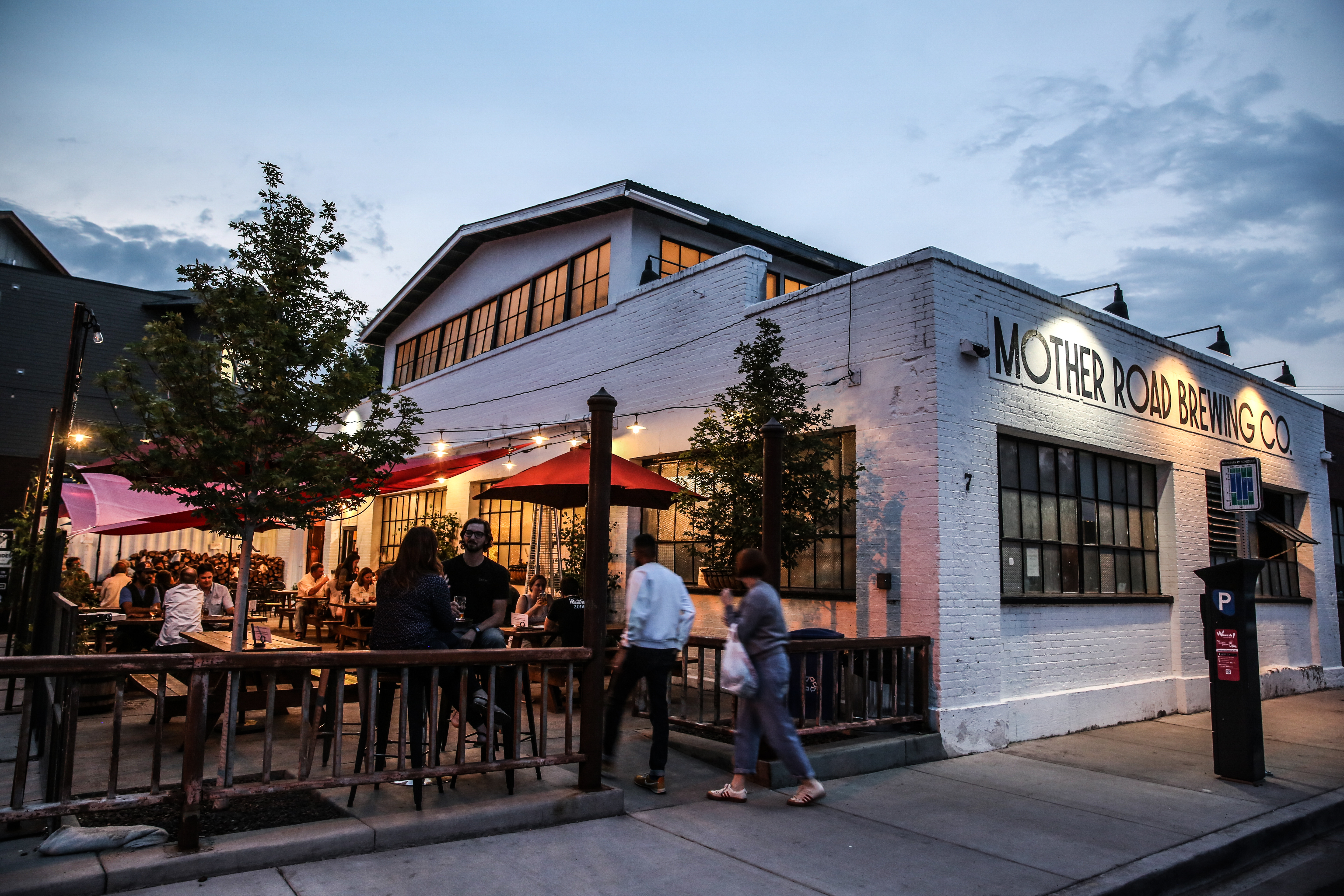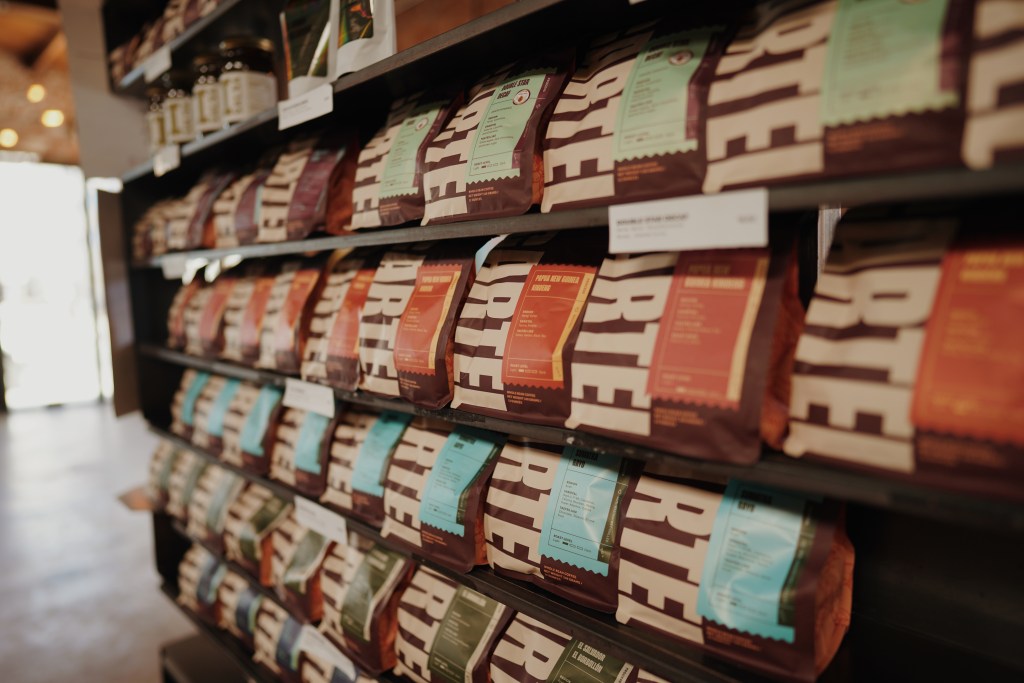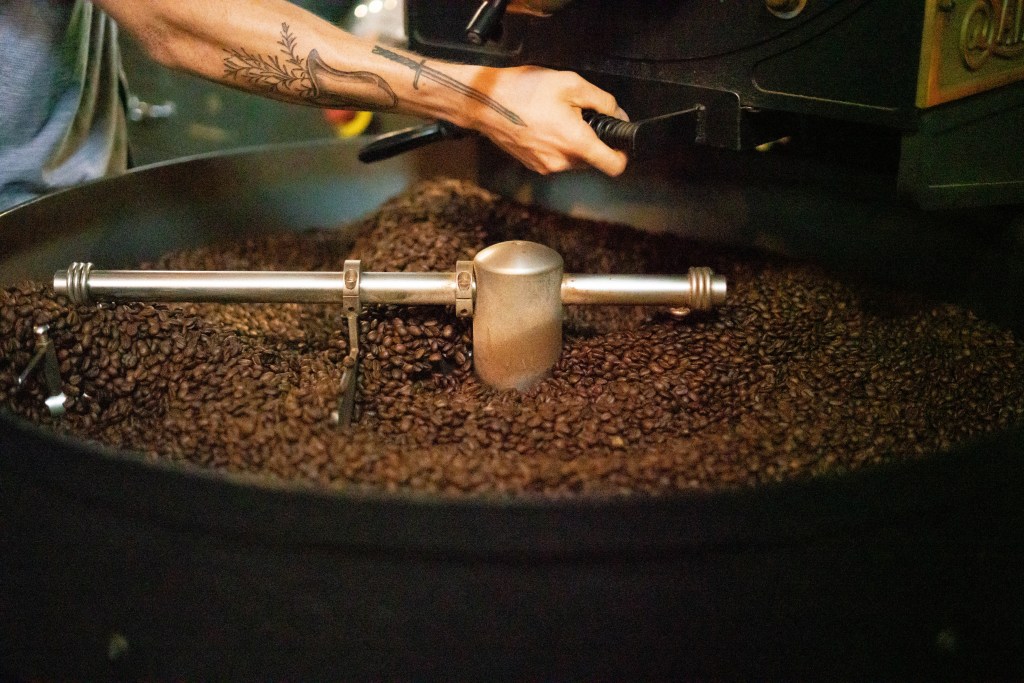
Mother Road Brewing Co.

Audio By Carbonatix
April Doherty and her husband have been regulars at Mother Road Brewing Co. since the Flagstaff brewpub opened in 2011. Over the years, they’d frequently have a beer or two, order pizza from adjacent Pizzicletta and play games in the back room with their two children.
Doherty has witnessed the neighborhood brewery on Route 66 evolve from a cozy spot with two servers to a larger operation with a staff of a few dozen. She and her husband continue to frequent the brewpub and their kids, who have since graduated from Northern Arizona University, do too.
So when she heard about the opportunity to purchase shares in Mother Road, Doherty didn’t think twice.
“We’re not rich by any means. We’re just regular local Flagstaff people,” Doherty says. ”But I was like, ‘Yes, let’s totally invest.’”
Doherty withdrew $10,000 from her retirement fund to purchase 10,000 shares. This is her first time dipping her toes into the investor pool.
“I believe in Mother Road, so why not become part of it?” Doherty asks. “I don’t know what’s going to come of it, but that’s my brewery.”
Small business loans. Maxing out credit cards. Borrowing from family members. These have been the traditional sources of cash for entrepreneurs starting or expanding a company.
However, some Arizona small business owners, such as Mother Road founder and CEO Michael Marquess, are leveraging a relatively new revenue stream: crowdfunding fueled by customers.
Tempe residents Joel and Chariti Stern discovered Cartel Roasting Co. about 15 years ago when they received a coffee maker as a gift, and it came with a bag of Cartel beans.
For the last eight years, the Sterns have stopped by Cartel’s original Tempe location at least once a week. They credit the coffee shop and its owners with introducing them to the nuances of coffee and educating them about what goes into a good-quality cup. It’s also become one of their favorite social spots.
“So many times, we’ve met people at Cartel or recognized someone there,” Joel says. “It’s got a come one, come all atmosphere. It’s the ‘Cheers’ bar of Tempe.”
When the Sterns received an email from Cartel about opening up investment opportunities to the public, the decision on whether to take the plunge was immediate.
“The number one thing was that it started in Tempe and it’s a priority in our family to support Tempe things,” Chariti says. “This is a place we love and care for that has been a part of our lives, so it’s a cool opportunity to be able to give back to someplace that has been a big part of our world.”
The Sterns purchased $2,500 in Cartel shares. While they are no strangers to investing, this is the first time they’ve invested using this model.
And as for Doherty, the financial payoff is not top of mind.
“We’re just curious to see what happens next,” Chariti says.

Cartel Roasting Co.
Investors who ‘already love what you’re doing’
Marquess turned to crowdfunding to generate funds for capital improvements and expansion plans.
For years, customers had been asking about investing in Mother Road. But strict investor regulations from the U.S. Securities and Exchange Commission, or SEC, made it difficult for the non-trust fund crowd to get on board. In order to invest, the SEC requires people to meet the criteria of being an accredited investor, which includes an annual income of more than $200,000 or a net worth of more than $1 million.
However, crowdfunding is a way to generate money while engaging loyal consumers, Marquess says.
“We’ve been building a community one pint at a time for 14 years through engagement. No way we’d be Mother Road without them,” Marquess says. “This allowed us to bring them into our story. I find that to be quite the American thing.”
This inclusivity also made crowdfunding appealing to Amy Silberschlag, co-owner of the Tempe-based coffee empire she founded with her husband Jason in 2008.
“We’re a values-driven, people-forward community business. Taking investments from people who align with those beliefs allows us to keep those priorities,” Silberschlag says. “And as we grow and benefit, people get to be a part of that benefit as well.”
This is unlike traditional investor models, which often involve people with no personal connection to the business and who want to change it.
Cartel considered private equity and traditional bank loans. But those entities didn’t understand what made Cartel special and instead wanted to grow it into a larger chain, says COO Jesse Pangburn.
Instead, crowdfunding “felt like a better idea,” Pangburn says. “Why not open it up to hundreds of people who already love what you’re doing and want to be a part of it and see it grow?”

Mother Road Brewing Co.
Harnessing small-investor power
Both Cartel and Mother Road are utilizing StartEngine, a crowdfunding platform that enables people from virtually every economic background to invest in companies and startups. StartEngine’s presence in the food and beverage space made it particularly appealing.
In June, Cartel launched a campaign, which runs through Nov. 26. As of mid-October, it has raised more than $345,000 and attracted 252 investors. The minimum to get in the door is $300, but many Cartel regulars are investing $500 or $1,000 in shares that sell for $5 each, Pangburn says. The goal is to generate $1.2 million.
The funds will be used to grow the business, which currently has 13 locations across the Valley, Tucson and one in Palm Springs.
Opening two new shops in southern California and another in Arizona, elevating food options, enhancing the coffee subscription program and increasing e-commerce capabilities are part of the plan.
Mother Road’s campaign ran from June 2024 through Aug. 28, and raised $1.35 million, thanks to 1,421 investors.
This allowed Marquess to make physical improvements and work on expansion, research and development that will result in three new products. The brewery is set to release a sparkling hop water called Hop It Is; a non-alcoholic pale ale called Off Road; and Aspen Rush, a botanically-infused black tea with vodka. Expanding Mother Road’s reach into new markets like Nevada and New Mexico, while shoring up its presence in Arizona, are also on the horizon.
“We were rather tickled,” Marquess says of surpassing the $1 million mark. “You never know how these would go.”
Democratizing investment is one aspect that Marquess finds attractive.
“It’s a great way to allow small inventors in places where they haven’t been welcomed before,” Marquess says. “You don’t have to be a Rockefeller to participate in a capital market.”
In the Valley, Cartel’s campaign has generated a buzz. Other Arizona food and beverage business owners and operators have been checking in with COO Pangburn to see how the campaign is going. This includes Local First Arizona, whose leaders are intrigued about the potential benefits this could bring to other businesses.
“For small to mid-sized businesses, there’s some real traction there,” Pangburn says.
New to Arizona but not new
While the idea of using a wide swath of smaller investors to fund a business is starting to catch fire in the desert, the concept isn’t new, explains Hitendra Chaturvedi, a professor of practice in Arizona State University’s W.P. Carey School of Business’ supply chain department.
The phenomenon of crowdfunding has its roots in Kickstarter, which launched in 2009 as a platform connecting creators across various industries with financial backers to help bring their ideas to life.
The crowdfunding movement went a step further with the JOBS (Jumpstart Our Business Startups Act) of 2012, which made it easier for small businesses to raise capital and go public by easing SEC regulations.
These platforms gained momentum on the East Coast, but it took a while to move west, Chaturvedi says. In 2015, the AZ Equity Crowdfunding Act put them on local entrepreneurs’ radars. The act allows Arizona residents to purchase shares in Arizona-based businesses through online platforms.
The movement finally spiked in Arizona in 2021, after pandemic shutdowns took their toll on small businesses, Chaturvedi says.
East Coast businesses that saw success through crowdfunding had strong brand loyalty and local support and produced artisanal food and beverages sold directly to customers. Chaturvedi expects to see that in Arizona businesses, too.

Cartel Roasting Co.
Pros and cons
The advantages of crowdfunding are plentiful. In addition to not having to repay loans with interest and offer collateral, platforms like StartEngine attract loyal customers who have a vested interest in the company’s success. So, they have more incentive to frequent the coffee shop or brewery, in addition to purchasing their products from other shops or restaurants.
This motivation is very different from that of a traditional large investor.
“With a single, big investor, they are interested in the business because of dollars and cents,” Chaturvedi says. “But with this, your customers believe in your mission and often there’s a compelling story. They are investors who want to help grow your identity, and that’s why this model has become so interesting.”
A veteran entrepreneur, Chaturvedi launched the SMB (Center for Small and Medium-sized Businesses) Lab at ASU. Since 2022, it has helped 35 companies generate a total of $20 million in value.
He has witnessed the challenges and successes of local businesses and sees promise in this kind of fundraising, particularly here.
“Arizona is very local-centric. It took us over 15 years to discover crowdfunding and that would give Arizona an entrepreneurial ecosystem that will be the envy of many other states,” Chaturvedi says.
However, with the pros come a few cons.
While online crowdfunding platforms help ease barriers to entry, they are still regulated and monitored by the SEC. The reporting requirements for finances, profits and transparency can be tedious for small business owners. And it doesn’t take a math wizard to understand that managing 100 or 1,000 investors is more difficult than managing one or two.
It’s all about the ride
SEC rules prohibit businesses from offering a promise, a projected return on investment or a timeline on when an investor can expect to see a financial benefit. However, online equity platforms have produced an 8-13% rate of return, according to P2P MarketData, which provides a database of crowdfunding platforms and investment deals to help investors compare those opportunities. It typically takes five to 10 years for investors to be able to turn their shares into cash.
Chariti likes the welcoming feeling of Cartel and the diversity she sees among customers. Joel likes Cartel’s various charitable efforts and community involvement. Their decision to invest is rooted there.
“It’s not about how much (money) we’ll get (back),” Joel says. “It’s an opportunity to be part of that ownership community and place where some of our memories are formed.”
Doherty also likes being more personally connected to a business that has become like family.
“If something happens, great,” Doherty says, referring to a possible return on her investment. “If not, we’re happy to be there for the ride.”